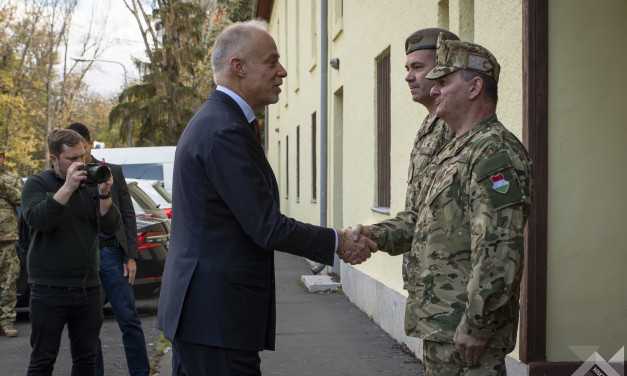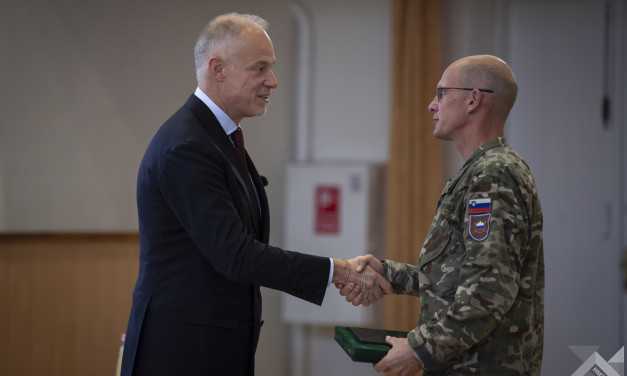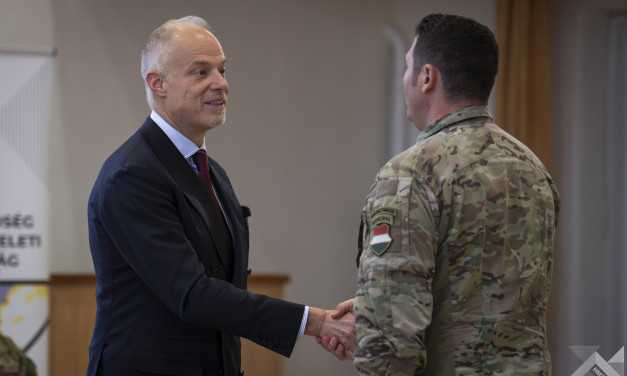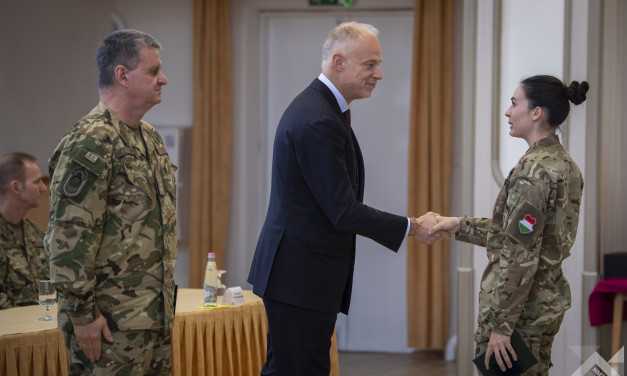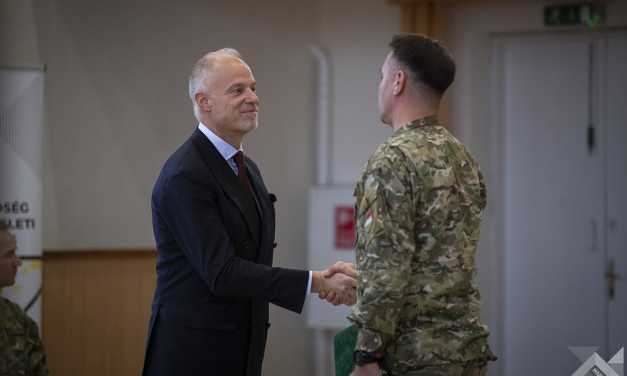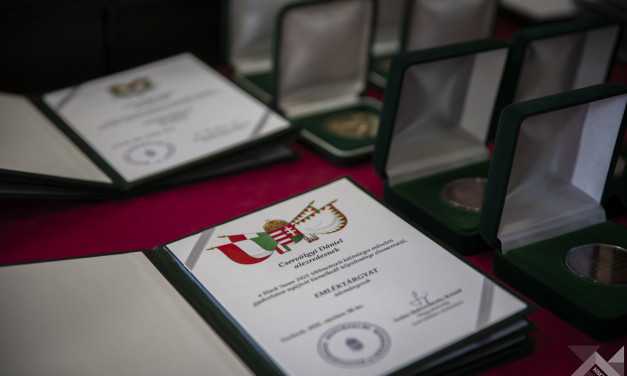Central Europe has now become a more secure place
Text: defence.hu/MTI | Photo: Franciska Veres | 12:55 October 29, 2025From now on, Central Europe is a more secure place – stated Defence Minister Kristóf Szalay-Bobrovniczky at the NATO Special Operations Forces Evaluation (SOFEVAL) of the regional special operations capability in Szolnok on Tuesday, 28 October.
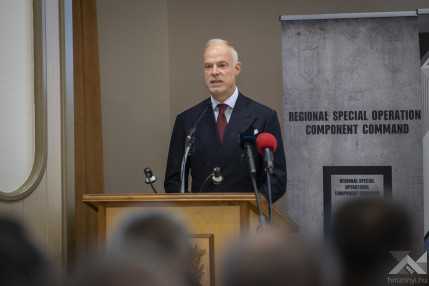
Speaking at the HDF “Lt. Ittebei Kiss József” Helicopter Base, Kristóf Szalay-Bobrovniczky announced that the Regional Special Operations Component Command (R-SOCC) has achieved the “Mission Capable” rating.
He highlighted that the government of Hungary had realized – in time and before others – that security would be a crucial factor of the decade in Europe and the whole world. “For this reason, as early as in 2010 we set out on a road, and today we have reached an important milestone on it” – said the minister.
He added that until 2010, the Hungarian military was mainly about reductions – about closing down barracks, consolidating units, reducing personnel numbers and phasing out armament systems. Afterwards, the development started, which first required the government to “ramp up” the economic capacity of Hungary, and once this capacity stood on reliable and stable legs, a serious force development program began around 2015-2016.
Kristóf Szalay-Bobrovniczky revealed that at that time, defence expenditures made up less than one percent of the Hungarian budget. It was then that we set out on a road which “took us up” to the 2 percent of GDP level of the NATO defence spending guideline by 2023, one year earlier than the expiry date of the Defence Investment Pledge to which we had committed in 2014.
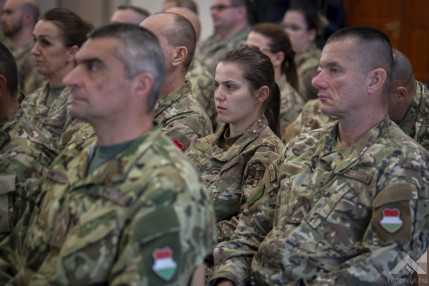
He pointed out that “this meant hundreds of billions of HUF of the taxpayers’ money”, which the government was – and is still – able to spent on defence within the framework of a well-thought-out force development program. Usually called the “spearhead”, the R-SOCC has a distinguished role in this process” – the minister went on saying, adding that this is the force that can become combat ready at the shortest notice, on the highest level of preparedness.
This is why the initiative launched in 2018 and aimed at establishing a Regional Special Operations Component Command together with the international partners was very important, and this command has now been declared “Mission Capable” – announced the minister, who congratulated the participants and the international partners.
The minister declared that Central Europe has now become a more secure place. This is all the more important because due to its geographical position, Central Europe has considerable significance in today’s security architecture.
Kristóf Szalay-Bobrovniczky stated that NATO has a 360-degree approach to security, but its designated, identified and most formidable threat comes from the east. The countries participating in this initiative are mainly situated on or near the eastern flank of the Alliance.
The minister of defence also noted that the Székesfehérvár-based Headquarters Multinational Battalion Centre (HQ MND-C) was recently declared to have reached Full Operational Capability (FOC). He called this another success and pride of Hungary and of “our Slovak and Croatian friends” participating in it.
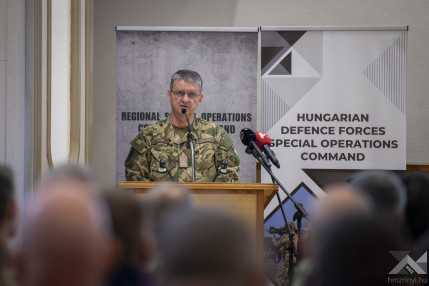
Deputy Chief of HDF Defence Staff Lieutenant General Ferenc Kajári said that the Hungarian SOF faced several trials of strength during Exercise Black Swan. The SOFEVAL team and the NATO monitors rated the performances of the Special Operations Land Task Group (SOLTG) and the Multinational Special Operations Air Task Group (MN SOATG) as “Mission Capable”, and then, on 20 October, the R-SOCC also reached this rating required by NATO. With this series of SOFEVALs, Hungary has demonstrated its leading role in the region – emphasized the deputy chief of defence.
He informed the audience that the “Mission Capable” rating means that the R-SOCC can be deployed in any NATO operation as an integrated, flexible and mobile command.
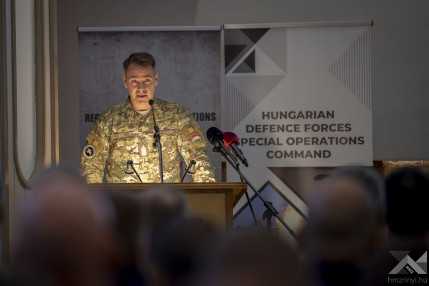
Colonel József Péter Simon, Commander, HDF Special Operations Forces Command said that the current achievement can be credited to serious, long-term, regional cooperation. The region of Central Europe is capable of collectively defending itself, finding solutions and taking joint action – added the colonel.
At the event, Kristóf Szalay-Bobrovniczky awarded tokens of appreciation to Major General Jaroslav Krám, Commander, Slovak SOF, Lieutenant Colonel Matija Jazbec, Commander, Slovenian SOF and Colonel József Péter Simon, Commander, HDF Special Operations Command in recognition of their outstanding service in the interest of the Regional Special Operations Component Command.
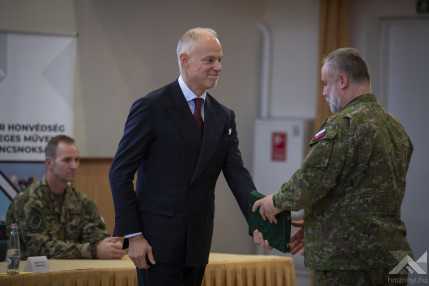
Lieutenant General Ferenc Kajári awarded tokens of appreciation to Lieutenant Colonel Dániel Cservölgyi, Lieutenant Colonel József Juhász, Captain Olivér Izmay and First Lieutenant Bianka Lilla Romvári for their dedicated service in the interest of the Regional Special Operations Component Command.
According to a press release handed out at the event, the Regional Special Operations Component Command (R-SOCC) is a multinational military project which was launched in 2018 on the initiative of Hungary. Apart from Hungary, the project involves Austria, Croatia, Slovakia and Slovenia.
